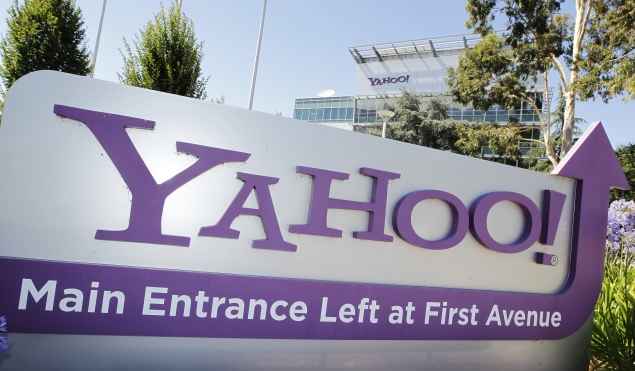- Home
- Internet
- Internet News
- Yahoo telecommute ban is much ado about nothing Silicon Valley
Yahoo telecommute ban is much ado about nothing - Silicon Valley

Working from home is common enough in the Valley, but that is in addition to - not instead of - the 40-plus hours spent working in the office. Despite the area's image as a freewheeling space that makes much of the technology that allows people to work remotely, Bay Area workers tend to head into the office, especially at start-ups.
"Every idea we have is a result of more than two people sitting in a room, riffing on or trying to think up a clever solution to a certain problem," said Sahil Lavingia, founder of payments startup Gumroad. "Things like that you can't do over any Internet protocol."
That does not mean Lavingia thinks his staff should never work from home. Just the opposite.
"Everyone should have a setup at home that makes them equally as productive, or close, as if they were in the office," he says. "Many people put in hours before and after work, and on the weekends."
The new policy at Yahoo, announced in a February 22 memo, calls for "all employees with work-from-home arrangements to work in Yahoo! offices." The change goes into effect in June.
Many of the storied trappings of startup life - the free food, the game rooms, the flip-flops - are aimed at keeping people in the office. That goes for the engineers, often young and male, just as it does for other employees in groups such as marketing and sales.
And the private, Wi-Fi-equipped buses that shuttle employees from San Francisco to Google and Facebook and other companies based in Silicon Valley are meant to make the commute more productive, lest anyone advocate eliminating them altogether.
The lack of rules is also a hallmark of startup culture, and few companies will declare a firm policy on issues like telecommuting. But the message is pretty clear.
Apple Inc cofounder Steve Jobs liked to talk about the long hours employees put in at the company's Cupertino, California, headquarters. "I've seen cars in the parking lot late at night, cots in some of the engineering offices," he said at a 2010 press conference.
Many companies hold regular meetings which all employees are strongly encouraged attend. At Twitter, they are called "tea time" meetings, but more typically Silicon Valley companies use the term "all-hands."
Cloud-content start-up Box holds an all-hands every Friday over lunch at its main office in Los Altos, California, and streams it to a satellite office in San Francisco. Box also has London offices, where a rebroadcast runs the following week.
And sometimes companies insist workers show up at the office, such as during the start-of-semester crunches at online textbook company Chegg, says CEO Dan Rosensweig.
"Everybody knows to either be in, or be available," Rosensweig says. "When you're in the rush, you can't really afford to not know where somebody is."
He believes Silicon Valley's premium on in-person collaborations comes from different teams having overlapping responsibility for products.
"Most of the companies out here, there's product, engineering, and business," he says. "There isn't necessarily one person who owns every piece of the P&L," or profit and loss statement, meaning that close communication is crucial.
David Rusenko, founder of Web-building service Weebly, says it simply becomes more efficient for everyone to sit together.
"We've tried to work with contract designers remotely, and the feedback cycle gets so long," he says. "If you're sitting with somebody two seats away, you say, 'Hey, I'm finished with this, can you take a look.'"
Teams can have as many as 10 back-and-forths a day when they are physically together, compared with maybe one working remotely, he says.
Some workers chafe at the premium that companies place on a physical presence, including Jeff Spirer, a mobile-marketing veteran. He recalls one job at which the CEO required everyone to be at the office, even though many employees had long commutes and would have been more productive staying home a couple of days a week.
"It was much easier for me to work at home, which I could only really do when he was traveling," Spirer says, referring to the CEO.
Old-guard Silicon Valley companies such as Hewlett-Packard Co and Cisco Systems Inc tend to be much more open to telecommuting.
That contrast may explain Yahoo's new policy. It is a big, mature company, but a struggling one, and people inside and outside agree it desperately needs a jolt of the all-hands-on-deck, start-up spirit.
"This isn't a broad industry view on working from home, this is about what is right for Yahoo!, right now," a Yahoo spokeswoman said.
© Thomson Reuters 2013
Catch the latest from the Consumer Electronics Show on Gadgets 360, at our CES 2026 hub.
Related Stories
- Samsung Galaxy Unpacked 2025
- ChatGPT
- Redmi Note 14 Pro+
- iPhone 16
- Apple Vision Pro
- Oneplus 12
- OnePlus Nord CE 3 Lite 5G
- iPhone 13
- Xiaomi 14 Pro
- Oppo Find N3
- Tecno Spark Go (2023)
- Realme V30
- Best Phones Under 25000
- Samsung Galaxy S24 Series
- Cryptocurrency
- iQoo 12
- Samsung Galaxy S24 Ultra
- Giottus
- Samsung Galaxy Z Flip 5
- Apple 'Scary Fast'
- Housefull 5
- GoPro Hero 12 Black Review
- Invincible Season 2
- JioGlass
- HD Ready TV
- Laptop Under 50000
- Smartwatch Under 10000
- Latest Mobile Phones
- Compare Phones
- Tecno Spark Go 3
- iQOO Z11 Turbo
- OPPO A6c
- Samsung Galaxy A07 5G
- Vivo Y500i
- OnePlus Turbo 6V
- OnePlus Turbo 6
- Itel Zeno 20 Max
- Lenovo Yoga Slim 7x (2025)
- Lenovo Yoga Slim 7a
- Lenovo Idea Tab Plus
- Realme Pad 3
- Garmin Quatix 8 Pro
- NoiseFit Pro 6R
- Haier H5E Series
- Acerpure Nitro Z Series 100-inch QLED TV
- Asus ROG Ally
- Nintendo Switch Lite
- Haier 1.6 Ton 5 Star Inverter Split AC (HSU19G-MZAID5BN-INV)
- Haier 1.6 Ton 5 Star Inverter Split AC (HSU19G-MZAIM5BN-INV)

















